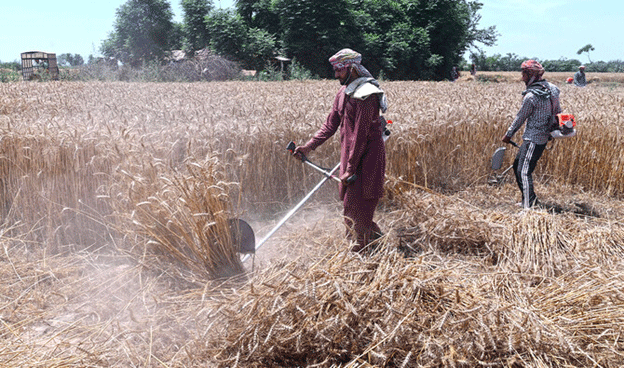Pakistan, a nation where wheat serves as a dietary staple, is confronting a major agricultural crisis. Provincial estimates indicate that the country will face a wheat shortage of approximately 5.66 million tons next year, exacerbated by a notable reduction in the sowing area. With wheat being crucial to the country’s food security and economic stability, this development has experts deeply concerned about its ramifications.
Decline in Sowing Area and Production
The government of Pakistan, through the Federal Committee on Agriculture, had initially set a target of producing 33.58 million tons of wheat from 10.368 million hectares by 2025-26 to achieve self-sufficiency. However, provincial proposals suggest a substantial decrease, with only 9.263 million hectares projected to yield around 27.92 million tons. This decrease in production estimates stems from multiple factors, including adverse policies and environmental challenges.
Water Scarcity Challenges
The Indus River System Authority (IRSA) has warned of a 16% water shortage for Punjab and Sindh during the crucial winter crop season. This water scarcity could significantly impact not only wheat production but also other winter crops. Adequate soil moisture is critical for optimal wheat growth, and any deficit at this stage could spell further trouble.
Economic and Social Implications
Economists warn that the wheat shortage will likely have a severe impact on Pakistan’s already high inflation rate. Agriculture, a vital sector for Pakistan’s rural economy, affects both employment and overall economic stability. If wheat output fails to meet demand, Pakistan will be forced to import wheat, draining valuable foreign reserves and increasing economic pressure.
Moreover, wheat shortages in the past have led to political and social unrest. Economists like Asif Arsalan Haider highlight the dire consequences of insufficient government support, emphasizing the need for a long-term agricultural policy. He pointed out that failing to secure adequate prices for farmers could push them to seek alternative crops, further reducing wheat availability.
Farmers Demand Support
Farmers’ associations, such as Kissan Ittehad, are urging the government to announce a minimum support price of over Rs4,500 per 40 kg to motivate farmers to sow wheat. Khalid Bath, the association’s president, stressed that without this incentive, farmers might shift to more lucrative alternatives. He also pointed out that there is still a small window—about 15 to 20 days—left in the sowing season, during which government intervention could make a significant difference.
Additionally, financial strains and IMF-imposed austerity measures have influenced agricultural policy. Earlier in 2024, the Punjab government cut its wheat procurement to reduce expenses, allowing the private sector a greater role. Reports showed that most farmers sold their crops to middlemen at lower prices, leading to reduced income and further discouraging wheat cultivation.
The projected wheat shortfall in Pakistan poses a substantial threat to food security, economic stability, and social harmony. Immediate action is necessary to encourage wheat cultivation and secure fair prices for farmers. However, a sustainable and well-rounded agricultural policy will be critical in the long run to prevent similar crises and promote self-sufficiency.
Error




